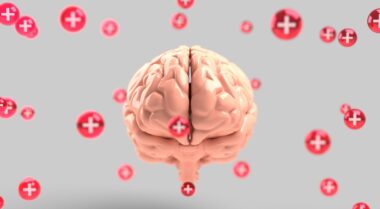The Relationship Between Hydration and Sports Performance
Hydration is a crucial factor that significantly impacts sports performance. Athletes must maintain optimal hydration levels to ensure their bodies function efficiently during exercise. Water plays an essential role in regulating body temperature, transporting nutrients, and reducing fatigue. Studies show that even minor dehydration can lead to a noticeable decline in athletic performance, particularly in endurance sports. Additionally, the fluid lost through sweat can vary based on environmental conditions, physical exertion, and individual sweat rates. Therefore, it’s paramount for athletes to implement effective hydration strategies before, during, and after exercise. Coaches and sports nutritionists often emphasize the importance of drinking water regularly, rather than waiting until thirst dictates fluid intake. This proactive approach can help sustain hydration levels and support optimal performance. Moreover, electrolyte balance also becomes crucial when discussing hydration, as minerals like sodium and potassium assist in maintaining fluid balance in cells. Failure to replenish these electrolytes can lead to cramping and decreased performance. To mitigate these risks, athletes should focus on integrating both water and electrolyte-rich beverages into their hydration routines.
In sports medicine research, the relationship between hydration and performance has garnered substantial attention. Hydration science has evolved significantly over the years, leading to more accurate assessments of fluid needs based on individual factors. For instance, an athlete’s weight, age, and the intensity of the sport all influence fluid requirements. Researchers utilize various methods to measure hydration status, including urine color analysis and specific gravity tests. These tools assist in recommending personalized hydration strategies tailored to an athlete’s unique profile. Furthermore, technology plays a crucial role in monitoring hydration. Wearable devices now track sweat loss and suggest real-time fluid intake adjustments, helping athletes maintain optimal hydration levels effortlessly. In this context, understanding the physiological mechanisms behind dehydration is essential. Dehydration can impair cardiovascular function, muscle endurance, and cognitive performance, leading to fatigue and decreased athletic output. Athletes who neglect proper hydration strategies expose themselves to unnecessary risks, including heat-related illnesses. By leveraging advancements in sports medicine and hydration science, athletes can better prepare for competitions and improve their performance capabilities. Overall, research continues to highlight hydration significance in maximizing athletic potential.
Hydration Timing and Strategies
Timing is essential when considering hydration strategies for athletes. It is not solely about how much fluid is consumed but also when it is taken, which can impact performance outcomes significantly. Studies indicate that hydration should start long before a workout or competition. Pre-hydration, or drinking fluids before exercise, helps build a reserve that can minimize dehydration during activity. Athletes should begin hydrating at least several hours before competition, allowing their bodies to prepare. Moreover, maintaining hydration during physical activity is crucial. For prolonged exercise, especially over an hour, water alone might not be sufficient due to electrolyte loss. In such cases, sports drinks that contain carbohydrates and electrolytes are recommended to replenish these critical components. After exercise, hydration continues to play a role in recovery. Rehydrating properly helps to restore fluid balance, facilitating muscle recovery and reducing soreness. Ideal post-exercise hydration involves not just drinking water but also replenishing electrolytes lost through sweat. Athletes should aim to consume between 1.5 to 2 times the fluid loss experienced during the activity. Following these strategies will enhance performance and significantly aid recovery.
Another vital consideration in hydration strategies is the individual needs and differences among athletes. Each athlete has a unique physiological makeup, which includes varying sweat rates and electrolyte concentrations in sweat. This means what works for one athlete may not be suitable for another. Research demonstrates that monitoring individual hydration statuses can lead to improved performance. Customized hydration plans based on sweat tests can yield beneficial results for athletes looking to optimize their hydration strategies. Furthermore, environmental conditions impact hydration needs dramatically; competing in high heat and humidity may demand a higher fluid intake compared to cooler conditions. Athletes are encouraged to learn their bodies’ signals which indicate dehydration, such as fatigue, headache, or decreased performance. Educational programs focusing on hydration awareness can be valuable in promoting best practices across various sports. Sports organizations and teams benefit by integrating hydration education into their training programs, enhancing overall athlete well-being. Athletes must also keep abreast of hydration science advancements to adapt their methods effectively. This ongoing education allows athletes to refine their strategies, ensuring optimal hydration and enhanced performance over time.
Effects of Dehydration on Performance
Understanding the detrimental effects of dehydration on performance highlights the importance of proper hydration. When athletes become dehydrated, they experience a range of physiological changes, impacting their overall capability to perform. Reductions in both concentration and coordination are common symptoms caused by fluid loss. As dehydration progresses, these impairments can escalate, leading to decreased endurance, increased fatigue, and slower reaction times. Studies reveal that even a mere 2% decrease in body weight due to fluid loss can alter performance significantly. Specific sports are particularly affected by dehydration, primarily those requiring endurance, such as running or cycling. Athletes must recognize their hydration levels and adjust their fluid intake accordingly to prevent these adverse effects. Moreover, dehydration can impact the body’s ability to regulate temperature, resulting in overheating during intense physical activity. This poses serious safety risks and can lead to heat-related illnesses. Therefore, integrating hydration considerations into training regimens is essential for maintaining athletic health and performance. By prioritizing proper hydration, athletes can ensure their bodies are prepared to meet the demands of their sport and reduce the risk of injury due to dehydration.
In recent years, the growing emphasis on hydration has led to innovative research and practices within the realm of sports medicine. One notable trend is the move towards personalized nutrition plans, incorporating tailored hydration strategies to address the specific needs of individual athletes. Advances in technology, such as hydration sensors and mobile apps, facilitate real-time tracking of fluid intake, helping athletes make informed hydration decisions throughout their training. Furthermore, a better understanding of biological signals relating to thirst and hydration status fosters a deeper comprehension of allowing athletes to connect more effectively with their nutritional needs. Collaborative efforts among sports scientists, dietitians, and athletes are crucial in designing effective hydration programs informed by the latest research findings. Such interdisciplinary approaches can lead to better performance outcomes and improved athlete health, ultimately impacting their careers. Addressing the unique hydration challenges posed by different sports and environments continues to be a significant focus in research. Staying attuned to developments not only enhances sports performance but also fosters a culture of health and well-being within athletic communities.
Future Directions in Hydration Research
As hydration remains a crucial aspect of sports performance, identifying future research directions is necessary to enhance athlete performance further. Investigating the impact of hydration on mental performance and cognitive function during sports is an emerging area ripe with potential. Understanding how fluid balance affects decision-making and focus under pressure could provide valuable insights for coaches and athletes alike. Additionally, exploring the relationship between hydration and recovery could yield novel strategies for optimizing athlete training cycles. This avenue of research might focus on post-exercise hydration strategies, determining the optimal combination of fluids and nutrients needed for effective recovery. Furthermore, addressing gender differences and hydration needs in sports is another important area of future research. Recognizing and understanding how men and women may differ in hydration responses to training and competition can lead to more personalized and effective hydration plans. Finally, engaging with diverse athletic populations, such as youth athletes and recreational athletes, could yield broader insights into hydration strategies that extend beyond elite performance. As the research landscape evolves, continuous improvements in hydration strategies will undoubtedly enhance athletic performance and athlete health.
In conclusion, the intricate relationship between hydration and sports performance is a vital area of focus in sports medicine research. Through continuous research and knowledge sharing, a culture of hydration awareness can emerge, empowering athletes to implement effective strategies tailored to their unique needs. By mastering hydration strategies before, during, and after physical activity, athletes can enhance their ability to perform at peak levels while minimizing risks associated with dehydration. Coaches, trainers, and sports nutritionists play an essential role in guiding athletes toward optimal hydration practices. Therefore, collaborative efforts and ongoing education will be key to harnessing the full potential of hydration science. As hydration science advances, the ability to track, analyze, and implement hydration strategies effectively will continue to grow, benefiting athletes across all sports disciplines. An emphasis on personalized hydration plans will improve performance and contribute to overall athlete health. Future investigations in this field will likely yield new insights into essential hydration strategies that can further elevate performance levels. In summary, athletes who prioritize and actively manage their hydration will undoubtedly experience the fruits of their diligence in their sporting endeavors.





